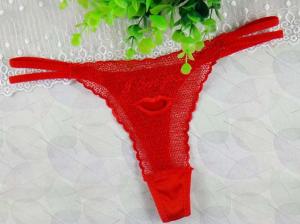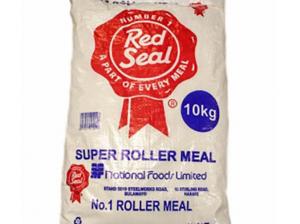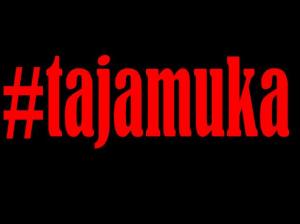Govt To Raise Import Duty

Published: 2016 May 15 07:00:40 (4181 Views)
Government has revealed plans to raise import duty before the end of the year to stem the rising tide of imports, increase production capacity and narrow the trade gap.
The envisaged interventions would add to broad measures, such as removal of specified goods from the general import licence, that have since been implemented.
A depreciating South African rand has made imports attractive while making local producers uncompetitive.
Industry and Commerce Minister Mike Bimha said that internal devaluation could help narrow the country’s negative trade balance.
“If the companies are operating at 20 percent or 30 percent, their costs are also high . . . so we must support local producers with capital and efficiencies.”
Government banned importation of second-hand clothes, shoes, leather products, blankets, maize meal, meat, sugar and flour from September 1, 2015.
Section 12 of Statutory Instrument 21 of 2010, as amended in March, requires all public institutions to procure at least 50 percent of their goods and services from local suppliers.
“Apart from playing around with imports, from removing the goods from general import license, we must support productive capacity to produce more goods.
“It’s a combination of many things and encourages our people to want to buy locally. There are some who have a tendency of importing goods with a view that they are of a superior quality.
ZimTrade is working with the Standard Association of Zimbabwe to assist local manufacturers big and small to produce goods of international quality.
- Sunday Mail
The envisaged interventions would add to broad measures, such as removal of specified goods from the general import licence, that have since been implemented.
A depreciating South African rand has made imports attractive while making local producers uncompetitive.
Industry and Commerce Minister Mike Bimha said that internal devaluation could help narrow the country’s negative trade balance.
“If the companies are operating at 20 percent or 30 percent, their costs are also high . . . so we must support local producers with capital and efficiencies.”
Government banned importation of second-hand clothes, shoes, leather products, blankets, maize meal, meat, sugar and flour from September 1, 2015.
Section 12 of Statutory Instrument 21 of 2010, as amended in March, requires all public institutions to procure at least 50 percent of their goods and services from local suppliers.
“Apart from playing around with imports, from removing the goods from general import license, we must support productive capacity to produce more goods.
“It’s a combination of many things and encourages our people to want to buy locally. There are some who have a tendency of importing goods with a view that they are of a superior quality.
ZimTrade is working with the Standard Association of Zimbabwe to assist local manufacturers big and small to produce goods of international quality.
- Sunday Mail
You May Like These Videos
Comments

Anonymous user
2016 May 15 09:26:01
This gvt only looks for ways of taking money from ordinary citizens. Chasing away investors this government is not for the people , for a country that has 99% unemployment you might As well encourage cross-border trade since you have failed to produce jobs.
Anonymous user
2016 May 15 08:24:08
Ur products are just too expensive, and to our gvt its a fund raising strategy to them,..in zim duty is increased every month,wc shows that the gvt & its leaders think about their own needs not that of the majority..ministers import goods duty freee
Get Zim Metro Updates Alerts
Big Reads

Schoolgirl drops out after continuous 'sexual abuse' by teacher
by Staff Reporter | 2019 August 13 07:42:33
Mugabe Knows Nothing About The Zimbabwe Constitution: MP
by Staff Reporter | 2016 October 01 08:12:02
Zim's Protesting Graduates Risk Losing Degrees For Expressing Anger Against Mugabe
by Staff Reporter | 2016 October 01 07:57:08
Troubled Harare Giants Dynamos Falls Into Another Deep Crisis
by Own Correspondent | 2016 October 01 07:49:17
Grace Mugabe Grovels At Mnangagwa, Says I Did Not Ask Ubaba To Fire You
by Staff Reporter | 2016 October 01 07:31:48
Mugabe Attacks Mawarire, Claims The Exiled Pastor Failed To Divide Zimbabwe
by Staff Reporter | 2016 October 01 07:19:13
Shock As Local Bank Denies 'Rich' Mugabe's Son Heifty Credit
by Own Correspondent | 2016 September 30 19:14:54
Trouble For Police Officers Who Have Been Mercilessly Bludgeoning Protesters
by Staff Reporter | 2016 October 01 07:20:19
Mugabe "Home Coming" And "Thank You" Rally On Cards
by Own Correspondent | 2016 September 23 06:48:24
Prof Moyo Was Dumped By Western Embassies, Claims Mutsvangwa
by Staff Reporter | 2016 September 22 10:08:07
Broke RBZ Tracks Down Zimbabweans Living Outside The Country Over Taxi
by Staff Reporter | 2016 September 22 09:16:20
You Are Too Old To Lead, Aging Zim President Mugabe Told
by Own Correspondent | 2016 September 22 07:19:25
Anti-Corruption Commission Loses Property In Failed Probe
by Own Correspondent | 2016 September 20 03:18:19
SHOCKING:14 Year Old HIV-Positive Boy Rapes 7 Pupils
by Own Correspondent | 2016 September 20 00:04:55

 WATCH: Victims Narrate Ordeal After Being Clobbered By Riot Cops
WATCH: Victims Narrate Ordeal After Being Clobbered By Riot Cops FLASHBACK: Morgan Tsvangirai Won't Resign Despite Illness
FLASHBACK: Morgan Tsvangirai Won't Resign Despite Illness  Police Violently Beat Harare Protesters
Police Violently Beat Harare Protesters  Zimbabwean Man Who Was Shot By Tswana Employer Appeals For Help
Zimbabwean Man Who Was Shot By Tswana Employer Appeals For Help











.jpg)






